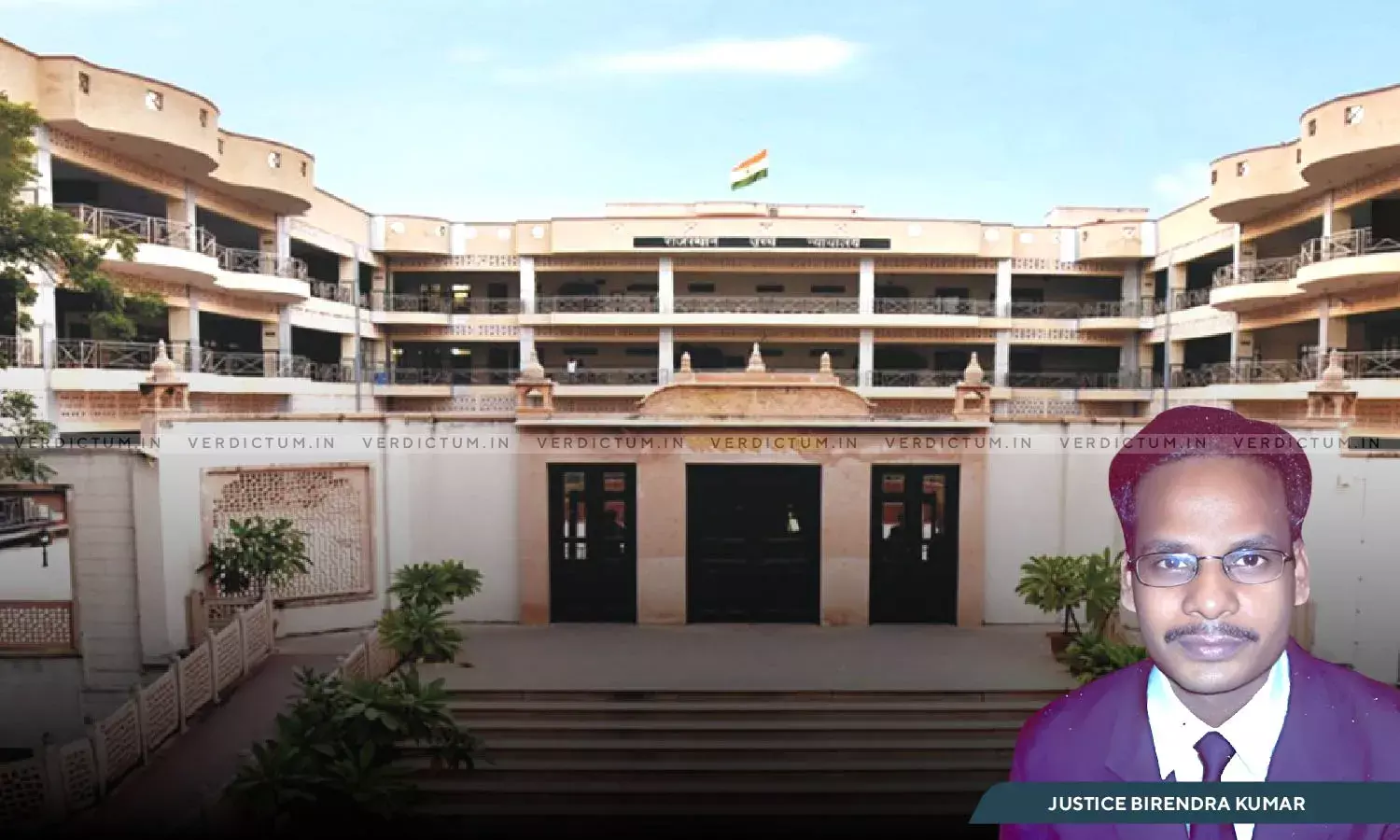No Work Of Complainant Was Pending With Accused On Date Of Complaint: Rajasthan HC Discharges Accused In Case Under PC Act
The Rajasthan High Court discharged an accused from a case registered for offences punishable under the Prevention of Corruption Act after finding that no official duty of the accused was pending with the complainant on the date of complaint.
The Court was hearing the Criminal Revision Petition filed by the Petitioner after he was aggrieved by the refusal of prayer for discharge under Section 227 CrPC. By the impugned order, the trial judge, after rejecting the prayer of the Petitioner, had ordered the framing of charges under Section 7, 13(1)(d) read with Section 13(2) of the Prevention of Corruption Act and under Section 120 B of the IPC.
The bench of Justice Birendra Kumar observed, “…no official duty was pending with the petitioner of the complainant at any point of time, especially on the date of making a complaint or putting trap against the co- accused. Likewise, there is complete lack of evidence that the petitioner had accepted/obtained any amount said to be the money of gratification.”
Advocate Naman Mohnot appeared for the Appellant and Advocate S.K. Poonia appeared for the Respondent.
Brief Facts-
The Complainant alleged that his truck carrying diesel was stopped by the Petitioner, an Assistant Commercial Tax Officer and he demanded a bribe of Rs. 80k after finding that the complainant was without a purchase bill for the diesel. It was alleged that ACTO further demanded Rs. 30k per month for continuing the alleged illegal trade. A trap was organised by ACB and ACTO was caught with Rs. 30k. After investigation, both the Petitioner and ACTO were charge-sheeted.
The Court mentioned the decision in Chandresha v. State of Karnataka Lokayukt Police Kalburgi, wherein the Karnataka High Court held, “when work of the complainant was not pending before accused as on the date of trap, the important ingredient to attract and complete the offence punishable under Section 7, 13(1)(d) read with Section 13(2) of the Prevention of Corruption Act cannot be sustained.”
The Court further referred to the Supreme Court's decision in Soundarajan Vs. State AIR 2023 SC 2136 where according to the Court SC observed, “to attract Section 7 of the Prevention of Corruption Act, there has to be a demand for gratification. It is not a simple demand for money, but it has to be a demand for gratification.”
The Court observed, “…to attract the mischief under Section 7 and 13(1)(d)/ 13(2) of PC Act, the Act of demand etc. must be relatable to the discharge of public duty by the public servant. If the public servant was not assigned with the public duty, the offences under the Act would not be attracted.”
The Court held that since ingredients of the offences for which charges have been framed are not prima facie attracted on the basis of available prosecution material in the nature of the charge sheet and since the trial judge is required by Sections 227 and 228 to apply its mind on the material on the record which it has failed to do, the impugned order suffers from impropriety.
Accordingly, the Court set aside the order of charge and allowed the Criminal Revision.




